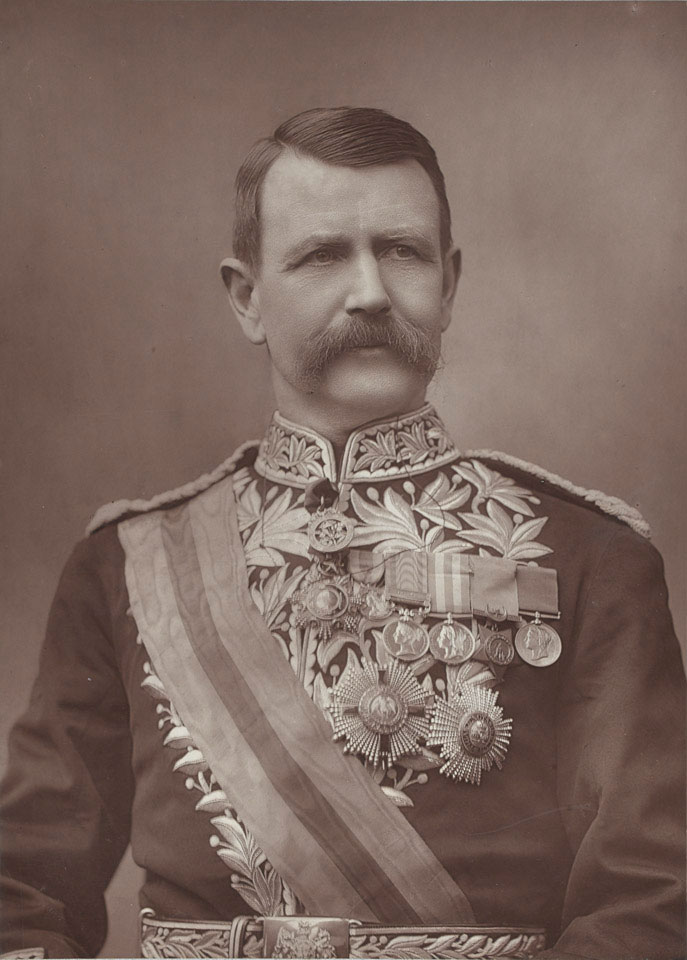
Online Collection
« Prev - 1 of 1 results - Next »
Sir Charles Warren, 1888
Photograph by Herbert Rose Barraud (1845-1896), 1888; published by W and S Limited, 1890 (c).
Sir Charles Warren in civil court uniform wearing orders and medals including the insignia of the Order of the Bath, the Order of St Michael and St George, the Queen Victoria Golden Jubilee Medal 1887, South Africa Medal with clasp '1877-8', Egyptian Campaigns Medal 1882-89, Khedive's Egyptian Star 1882-91 and the Queen Victoria Police Jubilee Medal of 1887.
General Sir Charles Warren (1840-1927) was born in Wales, the son of Major General Sir Charles Warren (1798-1866). In 1857, having attended the military academies at Sandhurst and Woolwich, Warren was commissioned as a 2nd Lieutenant in the Royal Engineers. Between 1861 and 1865 Warren served in Gibraltar where he surveyed the Rock of Gibraltar and was involved in producing detailed scale models of the territory. Warren then served as an instructor at the School of Military Engineering in Chatham.
Warren took part in the Palestine Exploration Fund's survey of Palestine in 1867 and participated in archaeological projects, including an excavation of Temple Mount in Jerusalem. Warren produced a number of books about his time in the Holy Land. Warren also served in South Africa, taking part in the 9th Cape Frontier War (1877-1879).
In 1882, Warren, serving as Chief Instructor in Surveying at the School of Military Engineering, was sent to Sinai to investigate the disappearance of an archaeological expedition led by Professor E H Palmer. Warren's success in bringing the murderers of Palmer's team to justice may have influenced his appointment as Commissioner of the Metropolitan Police in London in 1886. Warren, heavily criticised for his role in the unsuccessful investigation into the 'Jack the Ripper' murders, resigned in November 1888. He rejoined the Army and served in Singapore. In 1897 he was put on the Reserve List but returned to active service when the Boer War (1899-1902) broke out. He commanded the 5th Division in South Africa but received heavy criticism following the disastrous defeat at the Battle of Spion Kop in January 1900. He was recalled to England in 1900. Promoted to general in 1904, Warren became Colonel-Commandant of the Royal Engineers in 1905. He died of pneumonia on 21 January 1927.
NAM Accession Number
NAM. 1998-05-34-1
Copyright/Ownership
National Army Museum, Out of Copyright
Location
National Army Museum, Study Collection
Object URL
https://collection.nam.ac.uk/detail.php?acc=1998-05-34-1

